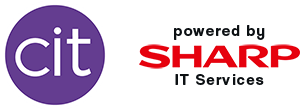Mobile computing is invaluable to the modern business, providing a way to boost productivity, mobility and flexibility. Employees can effectively work from any location at any time. They can also help to keep company capital spend low, by using their own laptops, smartphones and tablets.
This increased flexibility, particularly in terms of BYOD hardware that does not belong to your company, does have its drawbacks – especially when your company’s data is hosted locally (i.e. on your own servers).
Maintaining the same high levels of security to protect against malware and viruses is incredibly difficult when you can’t compel employees to install security software on their devices. So how can you protect employee mobile devices against exploitation by cybercriminals who may target your company’s data?
Using the Cloud to keep malware out
A proper solution to this potential problem will involve multiple actions to improve internal network security including network traffic encryption, device enrolment and segregating non-company devices among others. But another option is to move the data outside of the company network instead.
Choosing a Cloud-based file hosting service, sensitive information can be hosted in a datacentre outside the corporate network. These services employ enterprise-grade security provisions to protect your information, and are constantly monitored and updated to block unauthorised traffic – including malware.
Using Cloud file-hosting, your employees can still access all the information they need, any place, any time, using their own smartphones and tablets. At the same time your business still benefits from increased computing flexibility, but without the concern that a compromised device will end up causing a major security incident inside the company network.
Simplifying mobile management
Adding, removing and maintaining a list of authorised mobile devices is time consuming and complex. Configuring network security to permit or deny resource access can be even more problematic, particularly when first permitting remote access to corporate applications; the risk of creating a security hole or misconfiguration is relatively large.
However, Cloud systems are configured to allow authorised access by default. Once you have set up the permissions for a user, they should be able to connect using whichever device they choose. All of the relevant firewall rules are created and managed by the service provider, maintaining a high degree of security without adding to your workload.
For more information about Cloud services and the security benefits on offer, get in touch with our expert team at Complete I.T. today.



